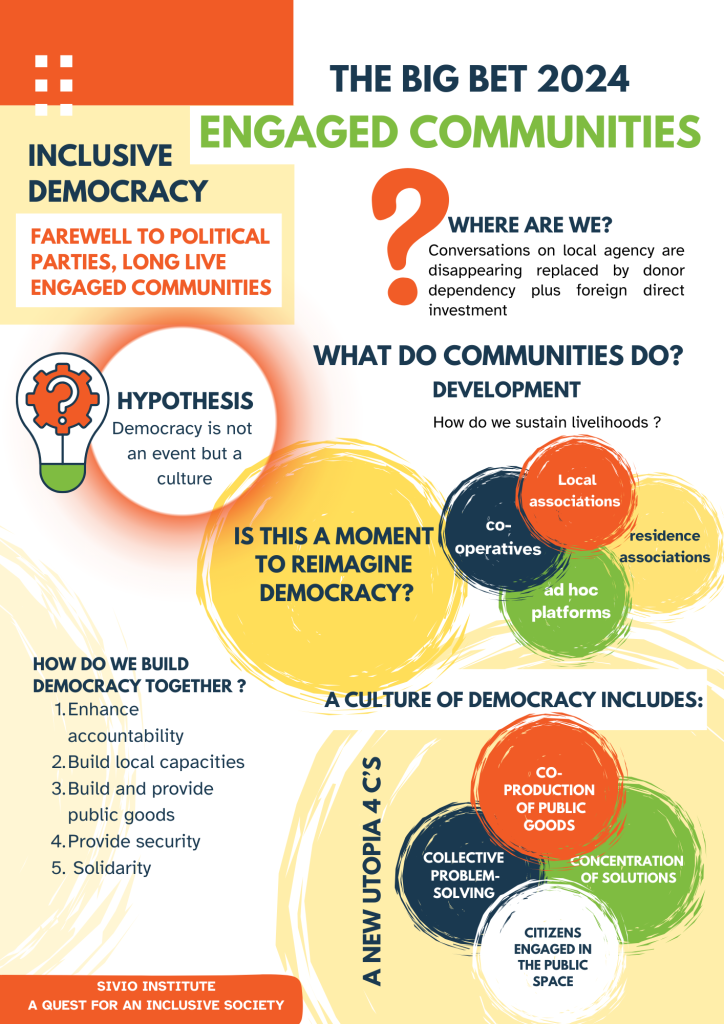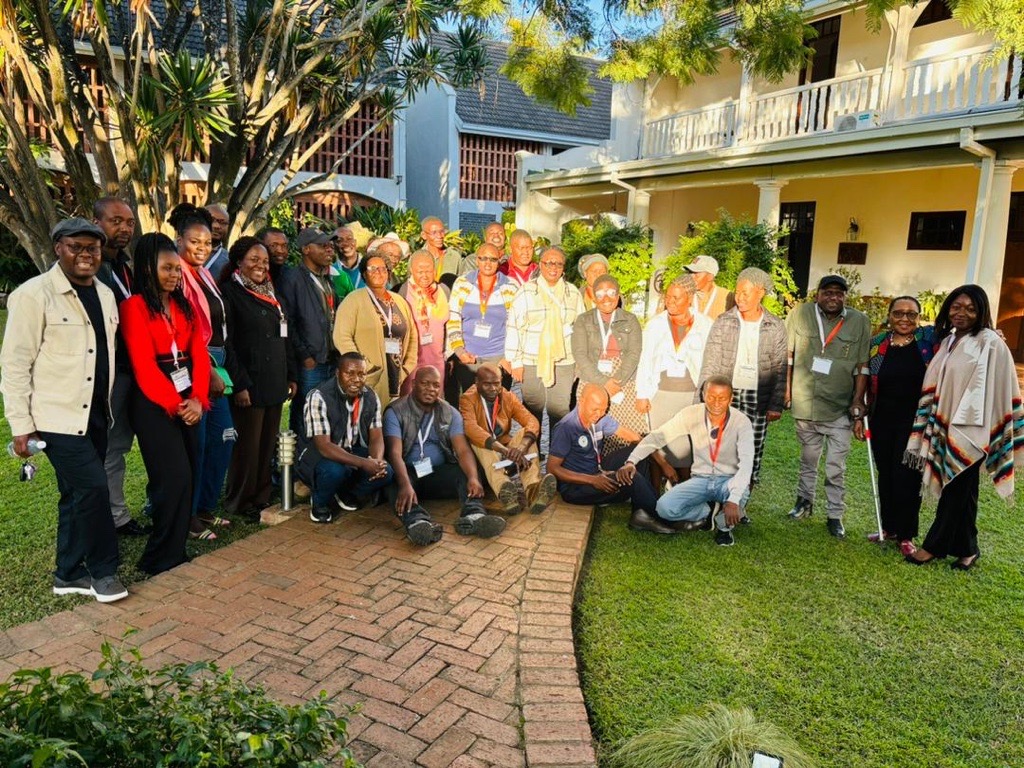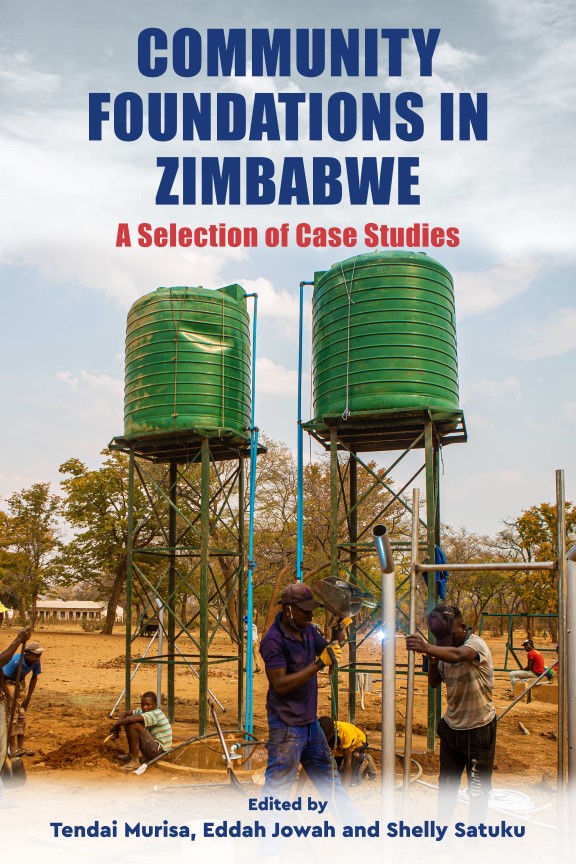The Big Bet on Engaged Communities
At the beginning of this year, we coined our activities around “The Big Bet” where we went back to the drawing board and reactivated our sense of community participation in development and democratic processes. The Big Bet casts the spotlight on communities and what they do for each other and with each other. Various evidence exists to demonstrate that communities are always at the forefront of mitigating challenges that confront societies. We have seen various forms of community philanthropy and solidarity at play in a quest to alleviate poverty, in times of disaster and in advancing local development. We believe in enhancing the possibilities of an inclusive society that is characterized by pro-poor development approaches and active citizen agency. We realised the need to strengthen the capacity of organisations to foster and champion community philanthropy. We strive to see community foundations working in synergies to advance the important work they do.

Our Centre for Philanthropy and Communities exists to foster and amplify all the various forms of philanthropy. Our role is to nurture the growth of community philanthropy by supporting philanthropy organisations working with and in communities. With that, we decided to bring together community foundations from various parts of Zimbabwe to think of ways of advancing as a collective effort. As a think tank and philanthropy support organisation, we carried out a study on community foundations in 2021 and conducted key informant interviews. We found a common trend of organisations (15 of 26) indicating that they work in silos. Some organisations did not have an idea of the existence of like-minded organisations covering the same issues as them but operating in different parts of the country. At SIVIO Institute, we had the privilege to map out and interact with community foundations spread across the country and compiled a case study-based book, the Community Foundations of Zimbabwe Book, detailing their journeys including their achievements and challenges. But we always have the “So what question” in everything we do because we seek transformation, we seek to impact.
Bringing together community foundations of Zimbabwe
This led us to our overdue desire to bring community foundations together. On the 16th of May 2024 we managed to host a gathering of 28 Community Foundations spread across Zimbabwe. Our role was to facilitate the proceedings and allow organisations to express themselves by sharing their founding journeys- the untold stories of their social origins, and what transpired for the organisations to be established. The room was filled with organisations of diverse backgrounds and experiences. There were pioneer community foundations such as the Community Foundation of the Western Region of Zimbabwe (CFWRZ) registered in 1998 and the Uluntu Community Foundation established by a former employee of CFWRZ borrowing some lessons from the foundation. Newly registered organisations were part of the conversation as well since the meeting was a space to cross-pollinate ideas and learn from one another.

Of particular interest was an organisation called Nhimbe Trust. The term “nhimbe” is derived from Zimbabwe’s most cherished practices of solidarity and pooled labour in a bid to realise food security in communities. The practice of “nhimbe” is a clear manifestation of horizontal philanthropy or peer-to-peer giving where families would come together to work on one community member’s field at a time during either ploughing or harvest season. The name Nhimbe depicts the values embedded in the organisation in fostering community solidarity with the youth taking centre stage in driving development in their communities. Chiedza Community Welfare Trust also shared a compelling story of how the organisation emerged and its work to date in addressing access to education and the empowerment of girls and women. The name “Chiedza” means light in Shona, depicting how the organisation has brought hope and light to many vulnerable girls. This was a rare opportunity for us to learn from all the organisations that attended. The common aspect behind their formations is that there was a pain point, an area of discomfort which propelled individuals to form institutions that would mobilise resources to address community challenges. The discomforts shaped the thematic areas the organisations seek to address for instance access to education, gender-based violence, disability and inclusion, etc.
Our role was to create a space where organisations could share opportunities and challenges, especially around accessing funding as community resource mobilisation has not been enough to adequately address societal issues. Community Foundations as grassroots organisations or local organisations indicated that they constantly face competition from big organisations. While the localisation agenda seems good, some big international organisations instead of collaborating are now establishing branches within the communities to address societal issues with little or no ability to relate to actual issues communities grapple with. Various publications have identified the problem of international organisations instead of partnering and providing capacity for local organisations, are taking over the space. To add to the problem, international aid tends to overlook grassroots organisations and the struggle for access to funding continues. The same plight has been highlighted in the global campaign “Too Southern to be Funded” under the Shift the Power movement. The concerns highlighted in the meeting mirror the same concerns from many other grassroots organisations from the global south.
A new dawn has come
SIVIO Institute maintained and will continuously maintain its posture as a philanthropy support organisation and a facilitator of nurturing community philanthropy in Zimbabwe. After organisations shared their lived realities and success stories which involved how they have been adapting to an ever-evolving operating environment. It was interesting to note that many organisations are exploring innovative ways of mobilising resources particularly monetary ones to keep their organisations going and ensure they sustain their programming areas. Only one organisation which registered recently indicated that they depend solely on grants and have not yet tapped into local resource mobilisation and social enterprise activities to generate income to sustain their organisation. The meeting saw organisations sharing various income-generating activities such as the production of reusable sanitary wear for girls from low-income households and monetisation of social media such as TikTok and YouTube channels.
The meeting marked the beginning of a platform for collaboration and cross-pollination of ideas. All the organisations agreed to form the first-ever Community Foundations of Zimbabwe Network which seeks to build a consortium of philanthropy organisations to strengthen community philanthropy and empower communities. As SIVIO Institute, our work is not done yet but has started as we look forward to providing support to the network as they consented to. Through SIVIO connect, we will be sharing more on these organisations and providing a platform for them to tell their stories.

